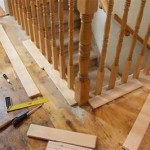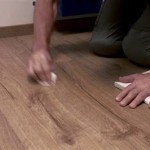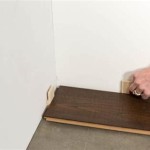Understanding the Vinyl Flooring HS Code in Malaysia
The Harmonized System (HS) Code is a standardized international system of names and numbers used to classify traded products. Developed and maintained by the World Customs Organization (WCO), it is used by customs authorities worldwide to identify products when assessing duties and taxes and for gathering statistics. For businesses involved in importing or exporting vinyl flooring in Malaysia, understanding the relevant HS code is crucial for proper customs declaration, compliance, and accurate calculation of import duties and taxes.
This article aims to provide a comprehensive overview of the HS code applicable to vinyl flooring in Malaysia, focusing on the nuances and distinctions that are important for businesses operating within this sector. It will cover the specific HS code, the types of vinyl flooring it encompasses, related considerations for import and export procedures, and potential implications for trade within Malaysia and internationally. Understanding these details is essential for ensuring smooth and compliant trade operations.
The accurate classification of vinyl flooring under the correct HS code also impacts trade agreements and preferential tariffs. Malaysia has several free trade agreements (FTAs) with various countries and regions. Proper classification can determine whether vinyl flooring products qualify for reduced or zero tariffs under these agreements, significantly affecting the overall cost of importing or exporting. Therefore, a thorough understanding of the HS code is not just a matter of compliance, but also a potential source of cost savings and competitive advantage.
Specific HS Code for Vinyl Flooring
The primary HS code that generally covers vinyl flooring is 3918.10. This code specifically refers to floor coverings of plastics, whether or not self-adhesive, in rolls or in the form of tiles. This is a crucial starting point for anyone dealing with vinyl flooring imports and exports in Malaysia. However, the devil is in the details, as slight variations in the product's characteristics can lead to different interpretations and potentially different HS code classifications.
Specifically, HS code 3918.10 includes various types of vinyl flooring, such as: * Homogeneous vinyl flooring: Made from a single layer of vinyl. * Heterogeneous vinyl flooring: Constructed with multiple layers, offering design flexibility and enhanced performance. * Luxury Vinyl Tile (LVT): Designed to mimic natural materials like wood or stone. * Vinyl roll flooring: Sold in rolls for larger areas.
It is important to note that the "plastics" referred to in HS code 3918.10 typically refer to polyvinyl chloride (PVC) or other vinyl-based polymers. Floor coverings made from different materials, even if they resemble vinyl, would likely fall under a different HS code. For instance, rubber flooring would have its own distinct HS code.
The term "self-adhesive" is also significant. If the vinyl flooring comes with a pre-applied adhesive backing, it is still classified under 3918.10. However, if a separate adhesive is required, the flooring itself is still classified under this HS code. The adhesive, if imported separately, would have its own HS code relating to adhesives.
Furthermore, the form in which the vinyl flooring is imported – whether in rolls or tiles – does not affect its classification under 3918.10. Both forms are covered under this specific code. This simplifies classification for manufacturers and importers dealing with different formats of vinyl flooring.
Misclassification of HS codes can lead to penalties, delays in customs clearance, and incorrect duty payments. Therefore, it is always advisable to seek professional advice from customs brokers or classification experts if there is any uncertainty about the correct HS code for a specific product.
Factors Influencing HS Code Determination
While HS code 3918.10 is generally applicable for vinyl flooring, several factors can influence the final determination and potentially warrant a closer examination. These factors relate to the composition, construction, and specific features of the flooring product.
One significant factor is the presence of other materials. If the vinyl flooring incorporates a substantial amount of materials other than PVC or related polymers, this could potentially shift the classification. For example, if a particular vinyl flooring product is significantly reinforced with mineral fillers or has a backing of a different material, the classification process needs careful evaluation.
Another crucial factor is the intended use. While most vinyl flooring is designed for general floor covering purposes, specific applications, such as anti-static flooring or flooring designed for specialized industrial environments, might influence the classification. These specialized products might be more precisely classified under a different subheading that reflects their specific function.
The manufacturing process can also play a role. Vinyl flooring produced using certain novel techniques or incorporating unique features derived from the manufacturing process may require a more detailed assessment to ensure accurate classification. For instance, flooring with a complex embossed surface or a special coating designed for enhanced durability might need further scrutiny.
The packaging and presentation of the product can also provide clues. If the vinyl flooring is presented as part of a larger kit or set, this might influence the overall classification of the imported or exported goods. The entire kit might then be classified under a different HS code that reflects the combined nature of the product.
To make an informed decision, importers and exporters should carefully document the composition, construction, intended use, and manufacturing process of their vinyl flooring products. This documentation will be invaluable when consulting with customs brokers or seeking classification rulings from the relevant authorities.
Malaysia's Royal Malaysian Customs Department offers guidance on HS code classification. Seeking clarification from them, especially for complex or borderline cases, can prevent future issues with customs compliance. The department's website and local offices provide resources and contact points for businesses seeking assistance. It's also beneficial to consult the Customs Duties Order, which is updated periodically, for current tariff rates and classifications.
Implications for Import and Export Procedures in Malaysia
Correctly identifying the HS code for vinyl flooring is paramount for complying with Malaysian import and export regulations. This has direct implications for several key procedures, including customs declaration, duty calculations, and adherence to trade agreements.
During the import process, the HS code is a mandatory field in the customs declaration form (typically Form K1). Providing an accurate HS code ensures that the imported goods are properly identified and assessed for the correct import duties and taxes, such as import duty and sales and service tax (SST). An incorrect HS code could lead to delays in customs clearance, penalties, and even seizure of the goods.
On the export side, the HS code is similarly essential for completing the export declaration form (typically Form K2). The HS code enables the Malaysian authorities to track the flow of goods leaving the country and compile trade statistics. It also determines whether the exported vinyl flooring is subject to any export restrictions or requires any special permits.
Furthermore, the HS code plays a crucial role in determining whether the imported or exported vinyl flooring qualifies for preferential tariff treatment under Malaysia's various free trade agreements (FTAs). Malaysia has FTAs with countries such as ASEAN member states, China, Japan, and Australia. If the vinyl flooring meets the rules of origin requirements specified in the relevant FTA and is correctly classified under the appropriate HS code, it may be eligible for reduced or zero tariffs. This can significantly lower the cost of importing and exporting and enhance the competitiveness of Malaysian businesses.
To ensure compliance with import and export procedures, businesses should maintain detailed records of all transactions involving vinyl flooring. These records should include invoices, packing lists, bills of lading, and any other relevant documents that support the HS code classification. It is also advisable to conduct regular audits of customs declarations to identify and correct any errors or inconsistencies.
Staying informed about changes to the HS code classification system is also important. The WCO periodically updates the HS code nomenclature, and these changes are subsequently adopted by individual countries, including Malaysia. Businesses should subscribe to updates from the Royal Malaysian Customs Department and consult with customs brokers to ensure that they are using the most current HS codes.
In conclusion, while the HS code 3918.10 primarily covers vinyl flooring, a detailed understanding of its nuances and the factors that influence its determination is essential for businesses operating in Malaysia. Accurate classification, meticulous documentation, and continuous monitoring of updates are key to ensuring compliance and maximizing the benefits of international trade. Seeking professional advice from customs brokers or the Royal Malaysian Customs Department is a proactive step in navigating the complexities of HS code classification and trade regulations.

Nii Floor 3mm Vinyl Flooring Code 450 1 Box 24 36 Sqft Building Materials Wall Kuala Lumpur Kl Malaysia Selangor Sentul Construction Industrial Supplies Cheng Huat Hardware Sdn Bhd

Nii Floor 3mm Vinyl Flooring Code 614 1 Box 24 36 Sqft Kuala Lumpur Kl Malaysia Selangor Sentul Construction Materials Industrial Supplies Cheng Huat Hardware Sdn Bhd

Nii Floor 3mm Vinyl Flooring Code 134 1 Box 24 36 Sqft Hardware Kuala Lumpur Kl Malaysia Selangor Sentul Construction Materials Industrial Supplies Cheng Huat Sdn Bhd

Nii Floor 3mm Vinyl Flooring Code 659 1 Box 24 36 Sqft Building Materials Kuala Lumpur Kl Malaysia Selangor Sentul Construction Industrial Supplies Cheng Huat Hardware Sdn Bhd

Nii Floor 3mm Vinyl Flooring Code 449 1 Box 24 36 Sqft Floors Walls Kuala Lumpur Kl Malaysia Selangor Sentul Construction Materials Industrial Supplies Cheng Huat Hardware Sdn Bhd

Nii Floor 3mm Vinyl Flooring Code 810 1 Box 24 36 Sqft Floors Walls Kuala Lumpur Selangor Malaysia Provider Supplier Supply Cheng Huat Hardware Enterprise Jalan Ipoh Sdn Bhd

Nii Floor 3mm Vinyl Flooring Code 450 1 Box 24 36 Sqft

5mm Thick 0 5 Mm Wearlayer Pvc Sheet Oak Vinyl Flooring Malaysia Spc Non Slip Floor Wood Register Made In China Com

Nii Floor 3mm Vinyl Flooring Code 450 1 Box 24 36 Sqft Kuala Lumpur Selangor Malaysia Provider Supplier Supply Cheng Huat Hardware Enterprise Jalan Ipoh Sdn Bhd

5mm Thick 0 5 Mm Wearlayer Pvc Sheet Oak Vinyl Flooring Malaysia Spc Wood Flooringbest And Marble Effect Laminate Floorin
Related Posts








